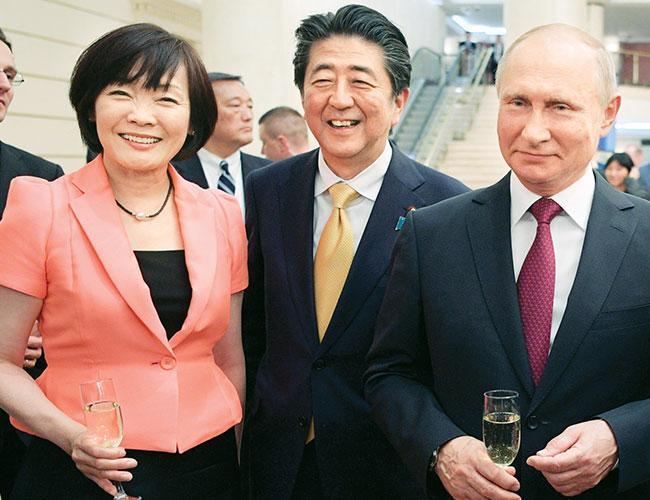
Japanese Prime Minister Shinzo Abe, seeking to draw on his close ties with President Donald Trump in talks today, will urge the U.S. leader not to forget Tokyo’s security concerns in his drive for a historic deal with North Korean leader Kim Jung Un.
Abe has spoken to Trump 30 times since he became president, including eight face-to-face meetings, and officials say Washington is well-aware of Tokyo’s stance towards Pyongyang. “Through summits and telephone conversations with President Trump, we have closely liaised and our positions are exactly the same,” Abe told reporters before departing for Washington.
“Ahead of this historic U.S.-North Korea summit, I will meet President Trump to coordinate in order to advance progress on the nuclear issue, missiles and - most importantly - the abductees issue,” he said, referring to the emotive matter of Japanese citizens kidnapped by Pyongyang’s agents decades ago. “I want make the U.S.-North Korea summit a success,” he said.
Still, concerns have simmered in Tokyo that Trump, his eye on November congressional elections, could cut a deal that would allow him to boast of protecting U.S. cities from nuclear attack but leave Japan vulnerable to shorter range missiles. Japan also fears Trump could eventually agree to reduce U.S. military forces in South Korea, leaving Japan as a frontline state against a Korean peninsula under heavy Chinese influence.
That would mean “Japan’s constitution, diplomatic policies and national security policies all will have to be totally reviewed for the completely new situation,” Katsuyuki Kawai, a special advisor on foreign affairs to Abe, told Reuters.
“It would be a nightmare for Japan and also for the United States,” he said.
Trump suggested on June 1 that the most tangible outcome of the June 12 summit could be the “signing of a document” to end the technical state of hostilities - 65 years after the Korean conflict ended with an armistice, not a peace treaty.